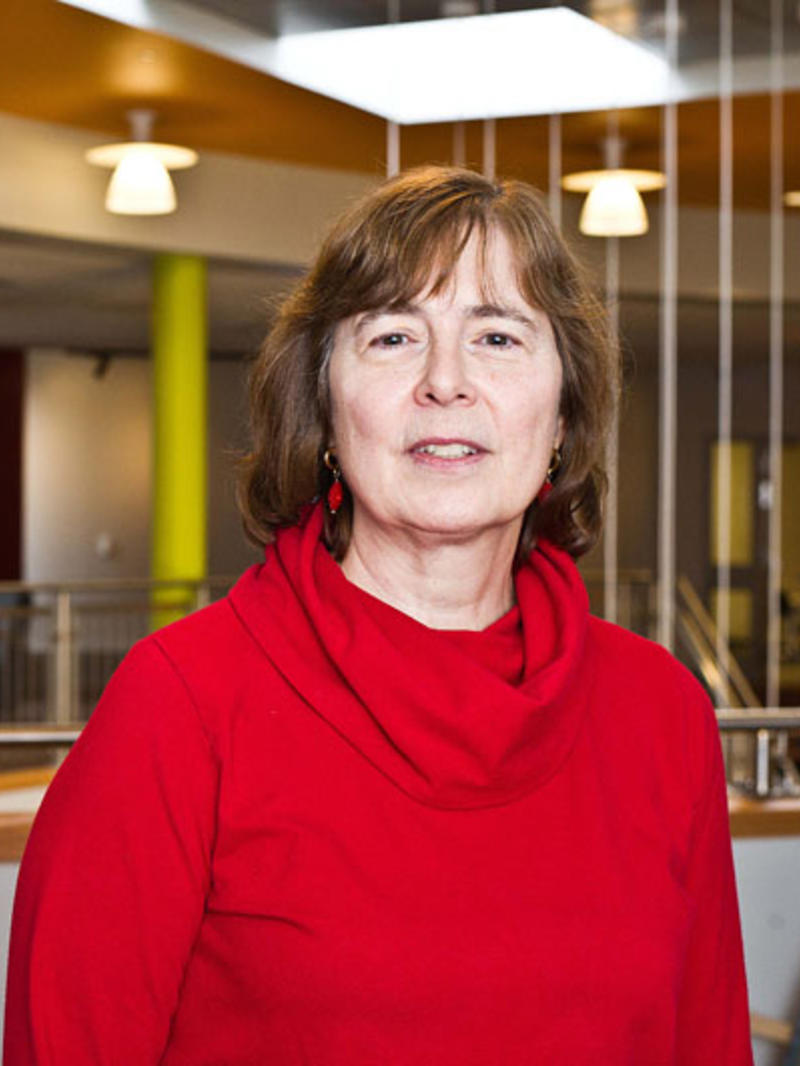Marybeth Ayella is Professor Emertia of Sociology. She earned her BA (in Sociology and Psychology) and MA (in Sociology) from Boston College. She earned a Ph.D. from the University of California at Berkeley.
A chance encounter with a “Moonie” (member of the Unification Church) at the start of her Ph.D. program at UC Berkeley led to her long-term teaching and research interest in “cults.” At present she teaches two courses on cults: Cults as Social Movements (taught to upper-division undergraduates) and Cults and Cultures: Sex, Gender, and Family in Cults/New Religious Movements (taught to students in the Honors program). In addition, her course for senior majors, “Extremist Movements,” focuses on terrorism and “deadly” cults (cults where there has been significant loss of life, as in Jonestown and the Branch Davidians in Waco, Texas).
In addition to research and teaching about cults, her other main research and teaching interest covers the areas of gender, sexuality, and family. She regularly teaches the courses “The Sociology of Human Sexuality” and “Marriage and the Family.” Both courses emphasize how our society’s perspective on gender shapes our notions of sexuality and marriage and family, by including cross-cultural and historical examples from other cultures, e.g., China and Russia, which differ significantly from our patterns. Her “Marriage and Family” course is unique in that it requires all students to care for “Baby Think It Over,” an electronic doll, for two days of the course, as part of their “marriage” relationship with another student in the course. The course and class were profiled on local news in 1998.
At present she works with senior majors in two capstone courses, Research Seminar I (taught in the fall each year) and Research Seminar II (“Extremist Movements”; offered in the spring of each year). Research Seminar I involves students completing independent research projects under the professor’s guidance. Students present the results of their research at the end of the semester at a poster session open to the entire university. In addition, they complete a paper on their research in journal article format.
Teaching students to do research has long been an interest of hers, as she has tried to include students doing research, using different methods, in many courses she has taught. For many years of teaching Introductory Sociology, she had students work in groups to create and administer to a small sample a survey, based on topics students came up with. They learned how to construct a table to show their results. In Human Sexuality, students do a content analysis of a magazine to determine how gender and sexuality are portrayed in articles and ads. In Marriage and Family, students simulate marriage and parenting by working in pairs and caring for “Baby Think it Over.” She taught Research Methods I and II (a year long course) for several years, supervising the completion of research projects and papers for each student. Finally, she continues to work with seniors as they do their Research Seminar projects, guiding mostly students using content analysis to examine some form of culture (e.g., films, songs, magazine ads, television news).
She also is director of the department’s Internship Program, which offers students the opportunity to do internships in each spring semester. These internships are both practical (requiring a minimum of 10 hours a week over the semester for 3 credits) and academic (requiring a research paper).
Her first book, Insane Therapy: Portrait of a Psychotherapy Cult (1998), described a psychotherapy group which evolved into a cult, and used unethical influence techniques to retain members. In doing this research, the issues of gender, sex, and family were brought up, as a “cult of masculinity” developed in the group. The quality unique to being a female, the ability to reproduce, was denigrated, and childbearing was actively discouraged. Gender roles were encouraged, but central to the feminine role was women’s appearance, which was highly emphasized, such that women were put on strict weight control and exercise programs to maintain unrealistic norms of appearance.
These observations on gender, sex, and family led to her present teaching and research interests. They resulted in the Honors course mentioned, “Cults and Culture: Sex, Gender and Family in Cults/New Religious Movements.” She is at work on a second book, tentatively titled Outside the Mainstream: Ex-cult Members Make Sense of Gender, Sex, and Family Experiences in Cults, on this topic. She has completed in-depth interviews with former members of cults, exploring their entry into, “careers” while in, and exit from, cults, and their experience of gender, sex, and family in their cults. She will be completing this research and writing during a sabbatical in spring of 2008
